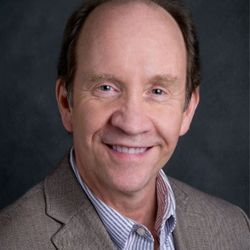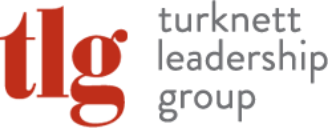
By Jonathan Palombo
Marketing ManagerAt one point in his career as a professional Psychologist, Dr. Michael Sessions had never even heard of executive coaching. After one fateful encounter with Bob and Lyn Turknett, that all changed. Over twenty years later, Michael has coached countless business leaders through Turknett. As one of TLG’s longest tenured coaches, we wanted to ask Michael about this unique blend of psychology and business, get the scoop on how he came into executive coaching, and what he enjoys most about it all.
Q: How do you blend psychology and business practices and what benefits does this have for your clients?
Well, it’s a natural blend in my world in that business clients are people. Psychology is the study and understanding of people. So, the more you understand people, you know they’re going to act like people, no matter what the environment. Whether they’re at work, or anywhere else, if you understand motivation, if you understand reinforcement, if you understand emotional complexity and conflict, then you understand the same things that people bring to work, and that drive and impair their ability to get a job done.
Q: You’ve been with TLG more than 20 years now. Tell us about this relationship and how it’s benefited you as a coach, for your career.
It’s been a remarkable addition to my life, as a professional and somewhat as a person, and it has shaped the way I think about people in their interactions with other people. My clinical practice early on was the primary influence in how I approached coaching. And coaching has significantly altered, in some ways, the way I think about clinical practice. One of the key constructs that’s come into my vocabulary, in probably the last five years, has been strategy. Understanding what strategy is, and how it impacts people in terms of goal-oriented behavior, regardless of the enterprise.
So, if strategy is the reconciliation of aspiration and limited resources, as you and I have talked about, that applies no matter what you’re doing. Having a personal strategy in your life requires you to first of all know what it is you want to do, who you want to be, and what you want to become. The blending of paradigms between coaching, business, and clinical practice, and understanding conflict and motivation, have really created kind of a durable template, that for me translates across environments. It’s enriched me on both sides.
Q: What do you think is the most important quality of a leader, and why?
In my mind, there isn’t just one. The whole premise when Bob and Lynn started TLG was balance. And that, to me, is a powerful insight and critical to any kind of effective work in leadership. Almost always, when I’m talking to leaders, what I’m looking for is the level of balance in terms of their appreciation of their need for people to execute their vision, and their willingness to hold people accountable and be able to give them proper direction. If I had to say, the one thing that I think is underrepresented somewhat in leadership, is probably humility. Humility affects a leader’s comfort level with their dependency on other people to be successful. But although humility is by far not enough to be effective, it is critically important. I think, if you’re going to grow as a leader, is you must be willing to acknowledge you need to build and depend on your team.
Q: What does TLG’s leadership character model mean to you, and how has it inspired you?
It’s a great model for how to be a person, I think, and I use it in my clinical practice. A lot of times I offer it up to people as a set of values to jump off from. The more your decision making is informed by your values, and the more your activities are engaged in the service of being the person you want to be, the more likely it is you will find satisfaction in what you do, and the more likely you are to make good decisions that conform to whatever aspirations you may have. So, the leadership character model is a way, it’s a compass, and it helps you understand if you are on course. Where are you deviating from your own values? I try to incorporate them personally. I encourage people to incorporate them as they determine the kind of person they want to be. And it just turns out that better people make better leaders.
Q: What do you enjoy most about being an executive coach and helping others reach their full potential?
I love learning about businesses. I love learning about what are people doing. Why are they doing it? And how can they do it better? I had a client yesterday who was just promoted to executive vice president. She had been a VP for several years and the role should have been an EVP. But part of the barrier was she didn’t think of herself truly as an executive, and that she really didn’t see herself as someone who should be influencing corporate strategy in a big company. As we were talking yesterday and doing a victory lap because it was the first time her role had ever been an executive VP role, we discussed the change was because she’d been able to elevate her articulation of why it was necessary, why this role needed to be larger to really execute and contribute to the larger strategy. So that is the kind of thing I love!
Q: What got you into becoming an executive coach? What brought you into that?
It was entirely a fluke. I was in a leadership role in a division of the Georgia Psych Association, and the GPA’s largest division at the time was Independent Practice and I chaired that division. I had responsibility for a conference that we put on, and as I was talking to somebody while I was standing in a lunch line about what we were doing and some things that needed to happen, Lyn Turknett(who I didn’t know yet at that time) was standing behind me. She listened in on the conversation, and because of what she heard, she went back and told Bob that night when they were in their hotel room, “There’s someone we should talk to about maybe getting involved in our business.” I didn’t even know what executive coaching was, other than I had heard the term, and that it was called CEO coaching. I thought it was silly, how many CEOs are there? How do you build a practice doing that?
Bob called me and set up a meeting. I was too busy, so I told him I couldn’t. When we got back to town, he called me again and said, “Come talk to us. Look at what we’re doing.” And I said, “Well, okay. I will.” So, I went, and we started talking, and it turns out it was a real thing, and it was at a point I was somewhat ready to diversify what I was doing. A lot of things were going on in healthcare and I was toying with the idea of an exit strategy from the industry. I thought, well, I’ll try this out. Healthcare has righted itself to some degree, and I didn’t quit healthcare, but I really liked coaching. I did it for one day a week, and now it’s a little bit more than that. But basically for 25 years, I’ve been a coach one day a week. So, I backed into it by accident and just happened to find that I like it.

